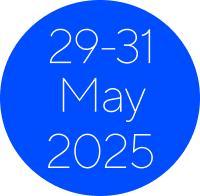Chair: Joost van Wijchen (Norway)
Speakers: Jennifer Audette (United States), Alice Jones (Australia), Narasimman Swaminathan (Oman)
-
Analyze Global Challenges: To critically examine the complex dilemmas facing clinical educators worldwide, including cultural, contextual, and situational obstacles, and their impact on clinical education in physiotherapy.
-
Innovate and Empower: To engage in constructive dialogue identifying and implementing innovative practices in clinical education that empower both educators and students, fostering a culture of curiosity and lifelong learning.
-
Shape Future Directions: To ignite discussions that encourage collaborative efforts to refine and advance pedagogical frameworks and practices in clinical education, aiming to elevate global physiotherapy training quality and efficacy.
In the rapidly evolving landscape of healthcare, the imperative to reimagine clinical education in physiotherapy has never been more critical. This symposium, “Transforming Clinical Education in Physiotherapy: Cultivating Inherent Agency” seeks to challenge conventional paradigms by proposing a curiosity-driven framework that emphasizes the cultivation of inherent agency among future physiotherapists. Rooted in the principles of critical pedagogy and inspired by the transformative potential of educational equity and health justice, this approach endeavours to foster a learning environment where curiosity is not only encouraged but seen as the cornerstone of professional growth and development.
At the heart of this transformative vision is the recognition that clinical education extends beyond the acquisition of technical skills to encompass the holistic development of reflective, ethical practitioners capable of navigating the complexities of healthcare with empathy, intellectual curiosity, and a commitment to social justice. This symposium posits that by embracing curiosity as a fundamental driver, clinical education can transcend traditional boundaries, facilitating a learning journey that is mutually enriching for educators and students alike.
This narrative acknowledges the interconnectedness of clinical educators and learners within the educational ecosystem, where each interaction is an opportunity to explore, question, and deepen understanding. It is through this lens of reciprocal learning and critical inquiry that the symposium will explore innovative pedagogical strategies designed to empower learners, enabling them to take ownership of their educational journey and to foster an enduring passion for exploration and discovery.
By situating clinical education within a broader context of societal and healthcare challenges, the symposium aims to underscore the vital role of physiotherapists as agents of change. This perspective invites a reevaluation of clinical education practices, urging a shift towards approaches that prioritize the development of critical thinking, adaptability, and the ability to engage with diverse perspectives and complex ethical dilemmas.
In summary, “Transforming Clinical Education in Physiotherapy: Cultivating Inherent Agency” offers a progressive framework for clinical education, echoing WHO’s Rehabilitation 2030 goals, with a focus on critical pedagogy principles. It highlights curiosity, agency, and justice, setting the stage for a pivotal shift in the conceptualization and delivery of clinical education. This symposium seeks to advocate for an educational model that elevates curiosity as a fundamental driver, aiming to transform lifelong learning, compassionate care and professional excellence in physiotherapy.
- Burgess, A., van Diggele, C., Roberts, C., & Mellis, C. (2020). Key tips for teaching in the clinical setting. BMC Medical Education, 20(Suppl 2):463. doi: 10.1186/s12909-020-02283-2.
- Ten Cate, O., & Schumacher, D. J. (2022). Entrustable professional activities versus competencies and skills: exploring why different concepts are often conflated. Advances in Health Sciences Education, 27(2), 491-499.
- Jette, D. U., Nelson, L., Palaima, M., & Wetherbee, E. (2014). How Do We Improve Quality in Clinical Education? Examination of Structures, Processes, and Outcomes. Journal of Physical Therapy Education, 28, 6-12.
- Van Wijchen, J., & Alme, M.N. (2022). On becoming a physiotherapist: Mindlines changing education. In Gabbay, J., & le May, A. (Eds.), Knowledge transformation in health and social care. Routledge, London. DOI: 10.4324/9781003158721-9.
- Torre, D. M., Schuwirth, L. W. T., & Van der Vleuten, C. P. M. (2020). Theoretical considerations on programmatic assessment. Medical Teacher, 42(2), 213-220.
- Dupre, A. M., McAuley, J. A., & Wetherbee, E. (2020). Objectives to Assess Student Readiness for First Full-Time Clinical Education Experiences in Physical Therapist Education. Journal of Physical Therapy Education, 34(3), 242-251.
- McCallum, C. A., Mosher, P. D., Jacobson, P. J., Gallivan, S. P., & Giuffre, S. M. (2013). Quality in Physical Therapist Clinical Education: A systematic review. Physical Therapy, 93(10), 1298-1311.
- Milanese, S., Gordon, S., & Swaminathan, N. (2020). The Value Placed on Roles and Attributes of Clinical Educators: An International Comparison of Indian, South African, and Australian Undergraduate Physiotherapy. The Allied Health Scholar, 1(1).
- Hennus, M. P., Jarrett, J. B., Taylor, D. R., & Ten Cate, O. (2023). Twelve tips to develop entrustable professional activities. Medical Teacher, 45(7), 701-707.
See the 24 focused symposia to be presented at congress.
Find out who the key speakers at congress will be.
Find out which clinical topics will be covered in these discussion-based seminars.




